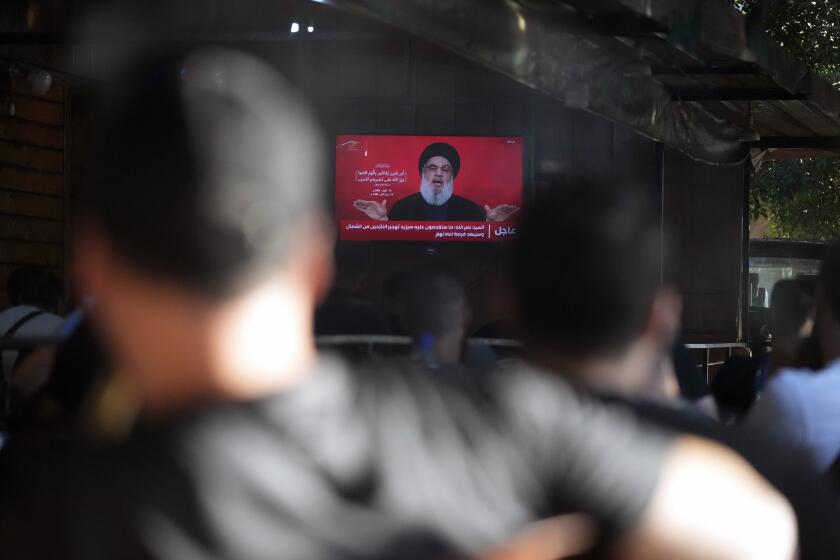Nuclear fuel won’t go abroad, a top Iranian says
Iran’s foreign minister vowed Wednesday that his nation wouldn’t allow any of its enriched uranium supply out of the country, the most definitive statement so far on an international proposal to exchange the bulk of Iran’s nuclear material for fuel rods fitted for a Tehran medical reactor.
Manouchehr Mottaki told the semiofficial Iranian Students News Agency that the Islamic Republic did not trust Russia and France -- which under the plan would further refine and mold the low-enriched uranium -- to follow through on the deal. Iran would prefer to exchange its uranium for the fuel rods within its own borders.
“We will definitely not send our [low]-enriched uranium out of the country,” he said in the comments published by the agency. “That means a simultaneous fuel swap inside Iran could be possible.”
The latest comments were seen as either a dismissal of a U.S.- and United Nations-backed proposal to ease international tensions over Iran’s nuclear program by lowering Tehran’s supply below the threshold required to make a bomb, or an attempt by Iran to haggle over the deal.
The U.S., Europe and Israel suspect that Iran is attempting to attain nuclear weapons capability. Iran insists that its complex of nuclear technology installations is meant for civilian purposes only. An International Atomic Energy Agency report this week said international inspectors harbored doubts that Tehran was being completely candid about its program, but it said they had found no evidence Iran was actively trying to build a bomb.
European and U.S. officials have grown increasingly frustrated with Iran and have been talking more about new sanctions, but they have failed to win the approval of Russia and China, which have veto power on the U.N. Security Council and are major trading partners with Tehran.
Iran has yet to make a concrete, formal response to the plan, devised in part by outgoing IAEA chief Mohamed ElBaradei and hammered out in closed-door diplomatic summits in Geneva and Vienna over the last two months. U.S. Secretary of State Hillary Rodham Clinton has said the proposal providing Iran with the fuel rods for use in a reactor making medical isotopes is final, drawing chastisement Wednesday from Mottaki.
“Diplomacy is not zero percent or 100%,” Mottaki said. “So the statement by Mrs. Clinton that Iran has no choice but to accept the proposal is undiplomatic.”
Western officials and analysts suspect that Iran’s ambiguity is meant to drag out the diplomatic process and divide world powers on the prospect of further sanctions.
Iran owns a 10% stake in a state-owned French uranium enrichment consortium, but it complains it has yet to receive any benefits from its investment, made during the reign of the nation’s last monarch, Mohammed Reza Shah Pahlavi.
Moscow this week announced another delay in the completion of a Russian-built nuclear power plant near the southern Iranian port city of Bushehr, bolstering critics of the nuclear-swap deal in Tehran who argue that world powers can’t be trusted.
A spokesman for Russia’s state-owned atomic energy company told the Interfax news agency that the plant should begin operations by March.
--
More to Read
Sign up for Essential California
The most important California stories and recommendations in your inbox every morning.
You may occasionally receive promotional content from the Los Angeles Times.










